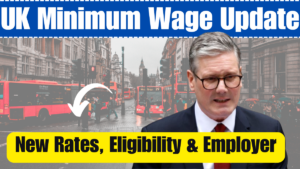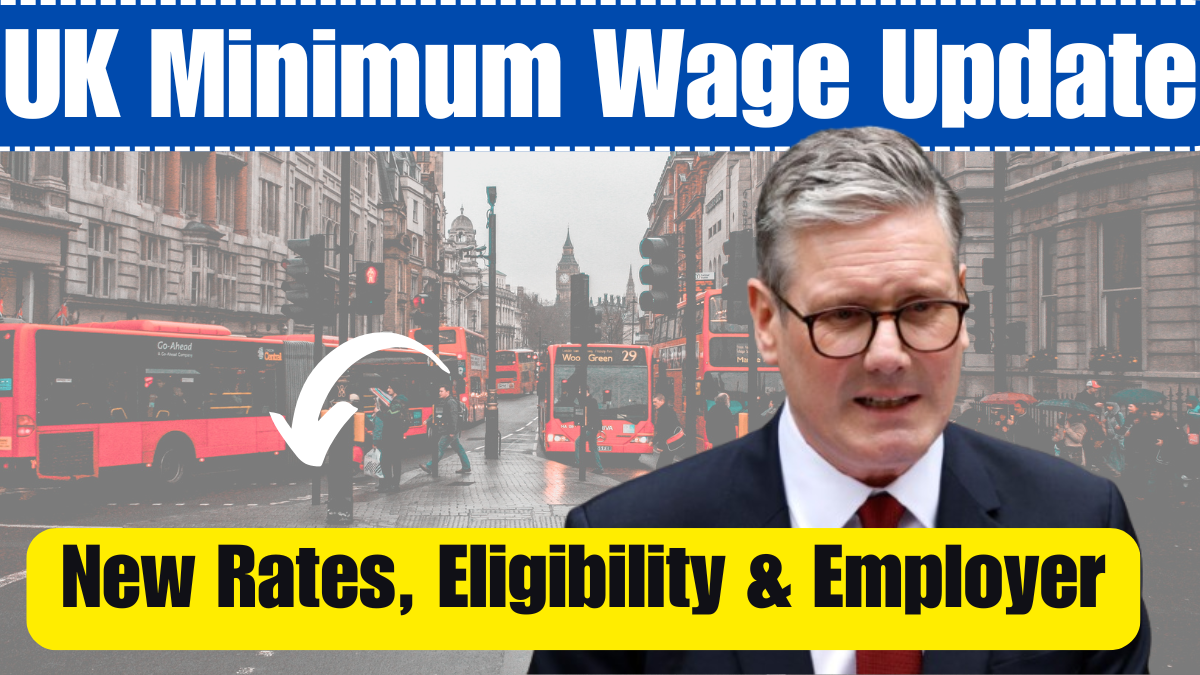The UK government has officially implemented a significant rise in minimum wages across all categories starting April 1, 2025. This change aims to support workers facing increasing living costs and inflation while helping maintain fair compensation across sectors. Millions of employees and thousands of employers will be affected by these new pay scales.

Minimum Wage Rates from April 1, 2025
| Worker Category | Previous Rate (£/hour) | New Rate (£/hour) | Percentage Increase |
|---|---|---|---|
| Aged 21 and over | 11.44 | 12.21 | 6.7% |
| Aged 18–20 | 8.60 | 10.00 | 16.3% |
| Aged 16–17 | 6.40 | 7.55 | 18.0% |
| Apprentices | 6.40 | 7.55 | 18.0% |
| Accommodation Offset (Daily) | 10.66 | 11.33 | 6.3% |
These increases mark a strategic shift towards bridging wage gaps and ensuring fair treatment for younger and entry-level workers.
How This Impacts Different Age Groups
Workers Aged 21 and Over
A worker earning the new rate of £12.21/hour and working 37.5 hours per week will see an annual increase of approximately £1,523, boosting their yearly salary to around £24,441.
Workers Aged 18 to 20
With the hourly wage rising from £8.60 to £10.00, young workers will gain roughly £2,730 more annually, making employment more appealing and reducing youth unemployment pressure.
Workers Aged 16 to 17 and Apprentices
These groups will also see an increase of £1.15 per hour, which helps promote apprenticeships and early employment, offering fairer compensation for training and entry-level positions.
Accommodation Offset
Employers offering housing must update the daily offset rate to £11.33, ensuring compliance with minimum wage law when deductions are applied.
Benefits for Workers
-
Improved Financial Stability: Increased earnings help workers cover essentials like rent, food, and transportation.
-
Greater Savings Potential: A full-time 21+ employee could save an extra £125/month.
-
More Access to Education: Workers may now have resources to pursue skills development or certifications.
Challenges for Employers
While these increases uplift employees, they can place pressure on businesses. Industries like hospitality, retail, and social care may be most impacted due to higher labor dependency.
Considerations for Employers:
-
Payroll Adjustment: Systems must be updated to reflect new wage bands.
-
Budgeting and Cost-Cutting: Expect higher wage bills and prepare with workforce planning or automation.
-
Compliance Risks: Failing to update wages could result in fines up to £20,000 per underpaid employee and reputational damage.
MUST READ: Canada Housing Benefit: Claim Your $500 Payment – April 2025 Guide
How to Prepare for the Wage Increase
For Employers:
-
Audit Your Payroll: Ensure all staff are aligned with new rates before the April deadline.
-
Train HR Staff: Equip your HR/payroll team to implement changes smoothly.
-
Plan for Cost Impact: Update financial forecasts, particularly in wage-heavy sectors.
-
Maintain Transparency: Communicate wage changes to employees clearly.
For Workers:
-
Verify Your Payslip: Confirm that your employer has applied the correct new rate.
-
Use Extra Income Wisely: Save, pay off debts, or invest in upskilling.
-
Track Future Updates: Stay informed about policy shifts affecting your job or salary.
Conclusion
The 2025 minimum wage increase is a welcome step towards wage fairness in the UK. While it strengthens financial support for workers, it also brings operational challenges for employers. A proactive approach—whether you’re an employee or a business owner—will ensure a smooth transition and maximize the benefits of the new wage structure.
Click here to know more.
